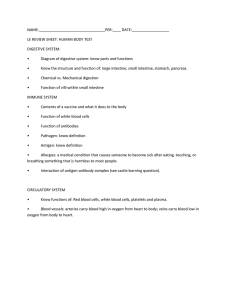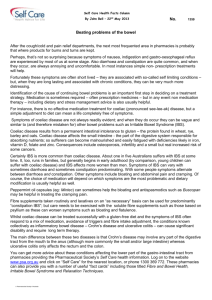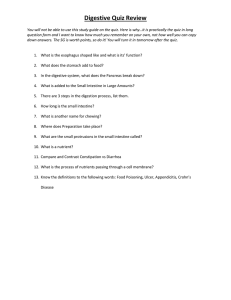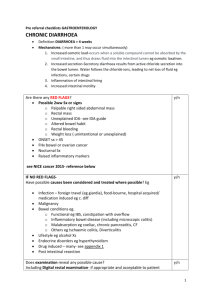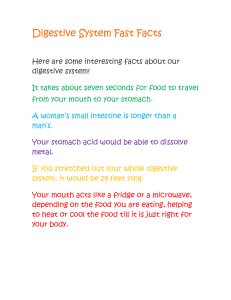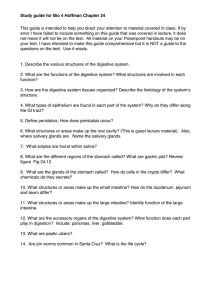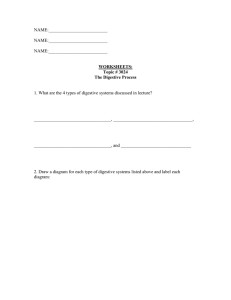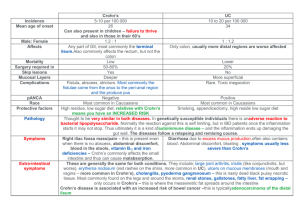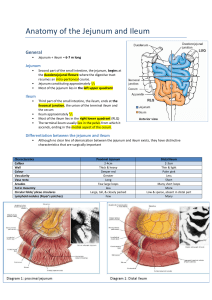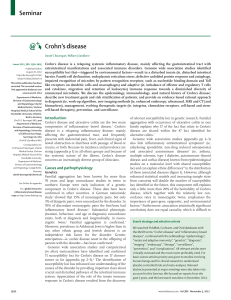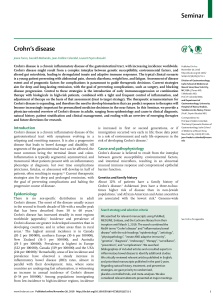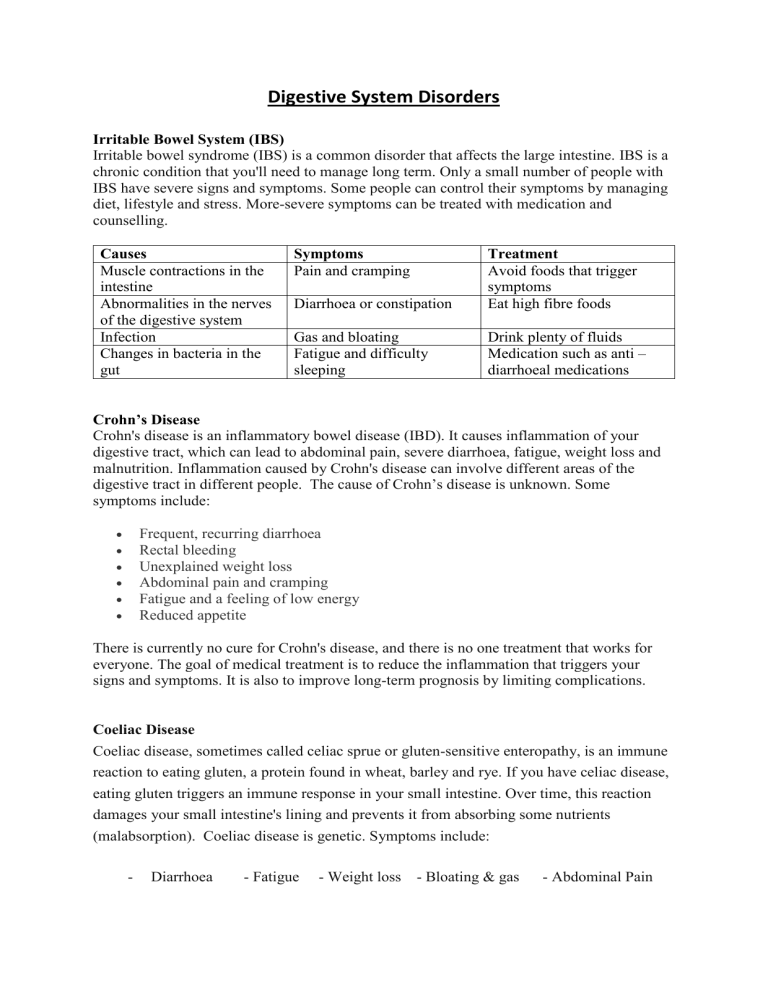
Digestive System Disorders Irritable Bowel System (IBS) Irritable bowel syndrome (IBS) is a common disorder that affects the large intestine. IBS is a chronic condition that you'll need to manage long term. Only a small number of people with IBS have severe signs and symptoms. Some people can control their symptoms by managing diet, lifestyle and stress. More-severe symptoms can be treated with medication and counselling. Causes Muscle contractions in the intestine Abnormalities in the nerves of the digestive system Infection Changes in bacteria in the gut Symptoms Pain and cramping Diarrhoea or constipation Treatment Avoid foods that trigger symptoms Eat high fibre foods Gas and bloating Fatigue and difficulty sleeping Drink plenty of fluids Medication such as anti – diarrhoeal medications Crohn’s Disease Crohn's disease is an inflammatory bowel disease (IBD). It causes inflammation of your digestive tract, which can lead to abdominal pain, severe diarrhoea, fatigue, weight loss and malnutrition. Inflammation caused by Crohn's disease can involve different areas of the digestive tract in different people. The cause of Crohn’s disease is unknown. Some symptoms include: Frequent, recurring diarrhoea Rectal bleeding Unexplained weight loss Abdominal pain and cramping Fatigue and a feeling of low energy Reduced appetite There is currently no cure for Crohn's disease, and there is no one treatment that works for everyone. The goal of medical treatment is to reduce the inflammation that triggers your signs and symptoms. It is also to improve long-term prognosis by limiting complications. Coeliac Disease Coeliac disease, sometimes called celiac sprue or gluten-sensitive enteropathy, is an immune reaction to eating gluten, a protein found in wheat, barley and rye. If you have celiac disease, eating gluten triggers an immune response in your small intestine. Over time, this reaction damages your small intestine's lining and prevents it from absorbing some nutrients (malabsorption). Coeliac disease is genetic. Symptoms include: - Diarrhoea - Fatigue - Weight loss - Bloating & gas - Abdominal Pain
